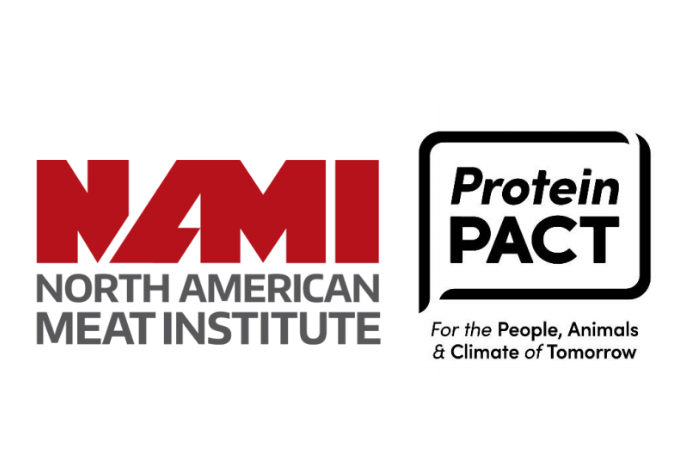WASHINGTON — The North American Meat Institute (NAMI) and the Protein PACT announced its partnership with The Interamerican Institute for Cooperation on Agriculture (IICA) at the recent UN Climate Summit (COP27).
The two groups worked together along with other stakeholders at the Sustainable Agriculture in the Americas pavilion to convene nine events focused on animal agriculture's role in sustainability in the future.
An IICA panel was held on Nov. 9 that dealt with sustainable livestock across regions and production systems. It also welcomed the Protein PACT's partnership.
"The livestock sector is moving at full tilt towards sustainability in the Americas and around the world and continues to play a central and invaluable role in global food security," said Manual Otero, PhD, DVM, director general of IICA. "IICA and its member states will continue to champion at COP27 and future COPs the critical role of sustainable agriculture, including livestock production, in the Americas."
During the summit, Ashley McDonald, interim vice president of sustainability at the National Pork Board (NPB), outlined the US pork commitments to ethical principles and best practices.
The NPB and Pork Checkoff started on-farm sustainability reports, which have been awarded $20 million in US Department of Agriculture Climate-Smart Commodities grant funding to expand the measurement and implementation of climate-smart practices.
Eric Mittenthal, chief strategy officer at NAMI, moderated a panel on Nov. 10 that featured evidence on the dietary contributions of animal-sourced foods while optimizing animal agriculture's environmental impact.
"Most common measures of environmental impact ignore nutrient-density - the contribution of foods to achieving recommended intakes of critical nutrients," said Adegbola Adesogan, PhD, director of the University of Florida Food Systems Institute during the Nov. 10 panel discussion.
"Sustainability solutions must ensure sustainable production of animal-source foods, which are 'brain foods' for the children our future depends on,” he said. “Eating meat, dairy, and eggs improves children's cognition and growth, and raising animals for food provides livelihoods and is a cornerstone of many cultures, particularly in the Global South.”
Earlier this month, NAMI and the Protein PACT released the first report on the meat industry's 2030 targets for the environment and other vital gauges.
NAMI said it showed 81% of facilities reporting data by member commitments to reduce greenhouse gas (GHG) emissions. The trade association said all its members with more than 2,000 employees submitted data and this report covers about 90% of the meat sold in the United States.



